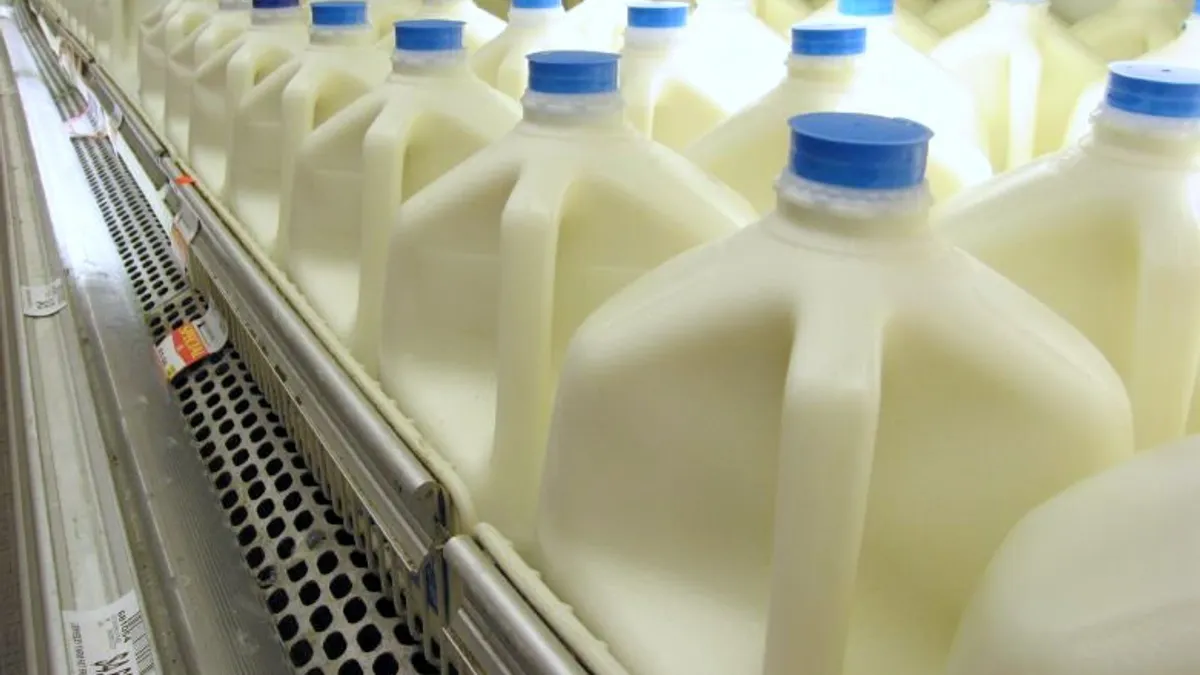Dive Brief:
- Children who drink whole milk are less likely to become obese than those who drink reduced-fat milk, according to a recent review of research published in the American Journal of Clinical Nutrition.
- Twenty-eight studies, including data on almost 21,000 children ages 1-18, met the criteria for review. Eighteen of the studies showed children who drank milk with higher fat content were less likely to become severely overweight, based on body mass index standard deviation scores.
- “International guidelines that recommend reduced-fat milk for children might not lower the risk of childhood obesity,” wrote the authors, led by Shelley M. Vanderhout with the University of Toronto. They note, however, more research is needed to “determine which cow-milk fat” reduced the risk of obesity.
Dive Insight:
A year ago, Reps. Glenn Thompson (R-Pennsylvania) and Collin Peterson (D-Minnesota) introduced the Whole Milk for Healthy Kids Act of 2019, which didn’t advance very far in Congress but was considered part of a larger effort to roll back the controversial school nutrition standards passed under the Obama administration.
Whole and flavored milk have been gradually disappearing from many school menus as a result of the Healthy, Hunger-Free Kids Act of 2010, championed by former first lady Michelle Obama. While proponents of the changes and some studies have pointed to the law's nutritional benefits, others have complained about greater food waste and the increased financial burden placed on districts in order to comply with the law.
Under current Secretary of Agriculture Sonny Perdue, some requirements related to whole grains, salt content and dairy have been loosened in an effort, Perdue says, to give districts more flexibility over school meal programs.
This new study is likely to contribute to further debate over the federal government’s role in setting school nutrition policy.








 Dive Awards
Dive Awards





